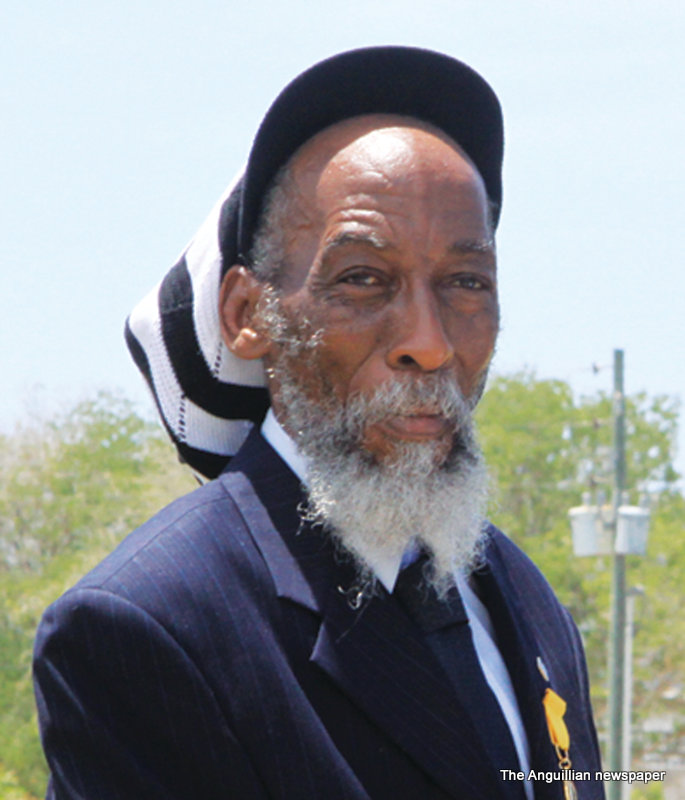
What lies beneath the blue waters of Anguilla, where the sea area is said to be a thousand times larger than the land mass, will be revealed when a costly undersea mapping project has been completed. What is even of more significance is the diversity of the island’s economy and the environmental protection that can result.
The United Kingdom Government has committing £270, 000, the equivalent of about EC$1 million, to the project in Anguilla. It is one of 13 projects in the Overseas Territories funded under the Darwin Plus Initiative.
The exploratory work brings together the Government of Anguilla, through the Ministry of Home Affairs and the Department of Environment in partnership with world-leading organisations in their respective fields. The project is being led by the United Kingdom’s Centre for Environment, Fisheries and Aquaculture Science (CEFAS) – in terms of fisheries and marine resources – along with the United Kingdom Hydrographic Office which focuses on navigational charting, Newcastle University renowned for its marine education and research, and Environment Systems Limited – a leading environmental consultancy.
The Darwin Plus Funded project, called “Mapping Anguilla’s ‘Blue Belt’ Ecosystems Services”, was launched here at the Soroptimists Conference Centre, on Tuesday this week, June 7.
Her Excellency Governor Christina Scott was delighted that the UK Government had committed to funding the project in Anguilla as part of its support for well-managed seas around the UK and its Overseas Territories. She noted that approximately 90% of the UK’s biodiversity is in those territories; and that “biodiversity is a crucial component of sustainable development in Anguilla, as it is across the world.”
The Governor continued: “Anguilla’s large marine area presents a number of challenges to biodiversity and sustainable management. Increased incidences and severity of storms predicted under climate change have consequences for island sediment dynamics. Shifting sediments can threaten critical ecosystem services such as beach extent, reef health, fish stock and diversity, as well as safe navigation.
“The project will provide modern baseline data which will be key to guide and inform the decision-making process where biodiversity loss, conservation and protection of our marine environment are concerned. Such modern baseline data will encompass coastal areas around most of Anguilla and, for the first time, will also explore and map deeper waters.
“The data will provide much-needed information for the development of the Anguilla Ocean Governance Policy, and future marine spatial planning to be used by national agencies such as the Departments of Lands and Surveys, Fisheries, Physical Planning and Economic Development. The data will be made available also, at no cost, to other partners outside of Government who are working so hard to protect and support the environment and develop sustainable fisheries – for example, the National Trust.”
Mrs. Cora Richardson-Hodge, Acting Chief Minister and Minister of Home Affairs with responsibility for Environment, said in part: “The launch of this project…is of pivotal importance to Anguilla and its many facets of economics, tourism, shipping, trade and marine security, to name a few. It is an initiative which will advance Anguilla a step further towards diversifying our economy and enabling us to sustainably manage our coastal and marine ecosystems. One may question why it is being done with the Department of Environment. Essentially, the Environment encompasses everything – hence it is important to have a holistic approach to national initiatives which have multifaceted outcomes and benefits for Anguilla.
“The Government of Anguilla fully supports this project. It reflects our manifesto’s objectives in key areas of natural resources conservation and management, economic diversification and infrastructure advancement…The initial marine map will be advanced to high resolution marine habitat maps for shallow and deep water for the first time. Emphasis will also be placed on understanding sediment dynamics and the implications for critical ecosystem services that underpin our economy – such as shoreline protection, safe navigation and beach recreation.
“The two-year initiative will enhance Anguilla in being able to provide safe access to ports which are essential for the island communities and growth of our economy…”
The Minister expressed the Government of Anguilla’s appreciation and sincere thanks to the United Kingdom’s Darwin Plus Initiative for supporting the project. She extended the same sentiments to the other partners in the project “willing to work with us for the long term.”
Dr. Koen Vanstaen spoke on behalf of the Darwin Plus project. “The Government of Anguilla and the Department of Environment have already done some initial work and it is great that there is the recognition that we need to do something [further] about it,” he stated. “This project is the next step in that process when we will visualise what lies beneath that blue water. There is something down there. It is not just lovely blue water.”
He said that the collected data would be placed in a navigational chart and in the environmental management systems in various other applications as was done in a similar project in the British Virgin Islands. He pointed out that in Anguilla “the sea area is about a thousand times bigger than the land area” and, as a result, the project might not be completed within two years.
The Darwin Plus official stressed that the marine environment and coastline of Anguilla was an important “life line” to the island in terms of shipping, fisheries and attracting tourists. “It is a finite resource which we need to look after to make sure that future generations will be able to enjoy it as well… and to maximise the economic value that can be gained,” he added.
Mr. Karim Hodge, Director of the Department of Environment, was pleased with the involvement and team work of the various partners as well as public and private sector agencies in the project, noting this would ensure its success. “The project has a variety of outcomes or outputs that key ministries, agencies, align agencies and the Government as a whole will benefit from,” he said. He joined in thanking the various partners and in particular the UK Government for funding the project under the Darwin Plus Initiative.
Other persons who participated in the opening ceremony were Mr. Andre Samuels who chaired the event and Mr. Rhon Connor, who delivered the welcome remarks. Both gentlemen are officials of the Department of Environment.
This segment of the launch of the project was followed by a stakeholder meeting. The aim was to provide feedback on where the work would have the biggest impact and should be started.








